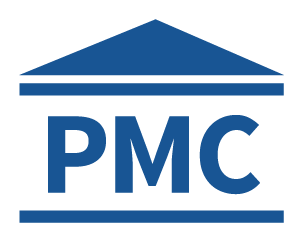Jabberwocky
Frumious Bandersnatch
I've seen discussion here around this topic which I have scoffed at and called outright dubious or dangerous. The approach here seems much more rational and appropriate.
The main difference here is that they are referring to using psychedelics and/or non-psychedelic derivatives in micro or sub-psychedelic dosing, but also importantly blocking the 5-HT2a psychedelic effect. The main goal being treating the cerebral atrophy associated with negative schizophrenia symptoms. @Skorpio I'm trying to get past the paywall. I found it on scihub but when you click the pdf link it 404s ;( if you know any tricks
 www.nature.com
www.nature.com
"Schizophrenia is a widespread psychiatric disorder that affects 0.5–1.0% of the world’s population and induces significant, long-term disability that exacts high personal and societal cost. Negative symptoms, which respond poorly to available antipsychotic drugs, are the primary cause of this disability. Association of negative symptoms with cortical atrophy and cell loss is widely reported. Psychedelic drugs are undergoing a significant renaissance in psychiatric disorders with efficacy reported in several conditions including depression, in individuals facing terminal cancer, posttraumatic stress disorder, and addiction. There is considerable evidence from preclinical studies and some support from human studies that psychedelics enhance neuroplasticity. In this Perspective, we consider the possibility that psychedelic drugs could have a role in treating cortical atrophy and cell loss in schizophrenia, and ameliorating the negative symptoms associated with these pathological manifestations. The foremost concern in treating schizophrenia patients with psychedelic drugs is induction or exacerbation of psychosis. We consider several strategies that could be implemented to mitigate the danger of psychotogenic effects and allow treatment of schizophrenia patients with psychedelics to be implemented. These include use of non-hallucinogenic derivatives, which are currently the focus of intense study, implementation of sub-psychedelic or microdosing, harnessing of entourage effects in extracts of psychedelic mushrooms, and blocking 5-HT2A receptor-mediated hallucinogenic effects. Preclinical studies that employ appropriate animal models are a prerequisite and clinical studies will need to be carefully designed on the basis of preclinical and translational data. Careful research in this area could significantly impact the treatment of one of the most severe and socially debilitating psychiatric disorders and open an exciting new frontier in psychopharmacology."
The main difference here is that they are referring to using psychedelics and/or non-psychedelic derivatives in micro or sub-psychedelic dosing, but also importantly blocking the 5-HT2a psychedelic effect. The main goal being treating the cerebral atrophy associated with negative schizophrenia symptoms. @Skorpio I'm trying to get past the paywall. I found it on scihub but when you click the pdf link it 404s ;( if you know any tricks
Could psychedelic drugs have a role in the treatment of schizophrenia? Rationale and strategy for safe implementation
Could psychedelic drugs have a role in the treatment of schizophrenia? Rationale and strategy for safe implementation - Molecular Psychiatry
Schizophrenia is a widespread psychiatric disorder that affects 0.5–1.0% of the world’s population and induces significant, long-term disability that exacts high personal and societal cost. Negative symptoms, which respond poorly to available antipsychotic drugs, are the primary cause of this...
"Schizophrenia is a widespread psychiatric disorder that affects 0.5–1.0% of the world’s population and induces significant, long-term disability that exacts high personal and societal cost. Negative symptoms, which respond poorly to available antipsychotic drugs, are the primary cause of this disability. Association of negative symptoms with cortical atrophy and cell loss is widely reported. Psychedelic drugs are undergoing a significant renaissance in psychiatric disorders with efficacy reported in several conditions including depression, in individuals facing terminal cancer, posttraumatic stress disorder, and addiction. There is considerable evidence from preclinical studies and some support from human studies that psychedelics enhance neuroplasticity. In this Perspective, we consider the possibility that psychedelic drugs could have a role in treating cortical atrophy and cell loss in schizophrenia, and ameliorating the negative symptoms associated with these pathological manifestations. The foremost concern in treating schizophrenia patients with psychedelic drugs is induction or exacerbation of psychosis. We consider several strategies that could be implemented to mitigate the danger of psychotogenic effects and allow treatment of schizophrenia patients with psychedelics to be implemented. These include use of non-hallucinogenic derivatives, which are currently the focus of intense study, implementation of sub-psychedelic or microdosing, harnessing of entourage effects in extracts of psychedelic mushrooms, and blocking 5-HT2A receptor-mediated hallucinogenic effects. Preclinical studies that employ appropriate animal models are a prerequisite and clinical studies will need to be carefully designed on the basis of preclinical and translational data. Careful research in this area could significantly impact the treatment of one of the most severe and socially debilitating psychiatric disorders and open an exciting new frontier in psychopharmacology."
Last edited by a moderator:








